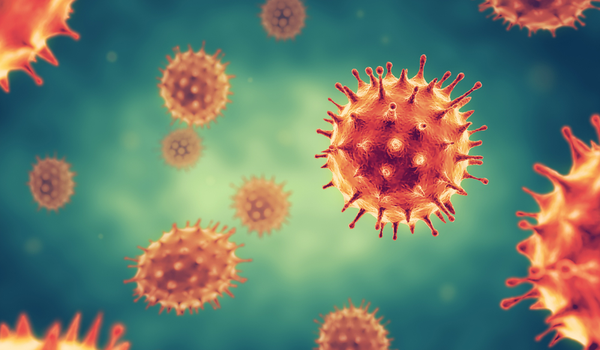What is COVID-19?
COVID-19 is an infectious disease caused by a new coronavirus that was first reported in China in December 2019. Coronaviruses are a family of viruses that can cause common colds, as well as more serious respiratory diseases such as Severe Acute Respiratory Syndrome (SARS) and Middle East Respiratory Syndrome (MERS).
What are the symptoms of COVID-19?
The most common symptoms of COVID-19 are the following:
- Fever
- Fatigue
- Dry cough.
Some patients may also experience, aches and pains, nasal congestion, runny nose, sore throat or diarrhea. Symptoms typically begin as mild and progress over time. However, some people may become infected and show little to no symptoms at all. The incubation period of the coronavirus, the length of time before symptoms appear, is between one and 14 days.
How does the virus spread?
Similar to other respiratory illnesses, the virus spreads from person-to-person through droplets. Droplets of bodily fluids – such as saliva or mucus – from an infected person are spread into the air or on surfaces by coughing or sneezing. These droplets can then come into contact with other people.
How serious is COVID-19?
The majority (nearly 80%) of infected persons will experience mild to moderate symptoms and can recover at home similarly to a cold or flu. For other individuals, with existing medical conditions or status, they may require additional medical attention, including hospilitization. Approximately 1 out of every 6 people who get COVID-19 becomes seriously ill.
Who is at the greatest risk for complications?
According to the World Health Organization (WHO), older adults (over the age of 60), and people with weakened immune systems are at greater risk for serious complications if they are infected with COVID-19. These persons are typically the same subgroup of individuals at high risk of illness from the flu. They include, but are not limited to people with chronic heart disease, diabetes, respiratory issues such as lung diseases and asthma, and cancer patients.
Are Cancer Patients and/or Survivors at Greater Risk of Complications?
Yes, they can be. Individuals currently or who have recently undergone cancer treatment, may have a weakened immune system. A weakened immune system may have a more difficult time fighting off the virus and can therefore lead the person to experience a greater health threat than the average person.
It’s important that cancer patients and/or survivors speak with their doctor about their risk and take the greatest level of precaution to prevent contracting COVID-19.
Is there a COVID-19 Vaccine or Treatment?
There’s no vaccine or specific treatment available yet. However, the National Institutes of Health (NIH) has fast-tracked human trials to develop a vaccination. Although several companies are working on vaccines and treatments, it’s unlikely that we’ll see one for at least a year. Still, this remains a top priority of health officials in the United States and around the world.
There are many false claims circulating about COVID-19. To help stop the spread of false and potentially medically damaging information, WHO has put together the following list of debunked claims.
What do I do if I may have been exposed COVID-19?
Call your doctor (before you go to the hospital) if you’ve been in close contact with someone who has COVID-19 or if you’ve recently traveled to an area with widespread exposure to the disease.
How can I keep myself and my loved ones protected?
Follow the CDC’s recommendations to help you stay informed, protected and prepared:
- Avoid close contact with people. Stay away from crowded locations like malls, theaters, and sports venues where you may unknowingly be in contact with infected individuals.
- Wash your hands frequently with soap and water for at least 20 seconds especially after you have been in a public place. Alternatively, you can use a hand sanitizer with at least 60% alcohol.
- Avoid touching your face, where the virus can have easy access to your body.
- Avoid touching surfaces in public places such as elevator buttons, door handles, and handrails.
- Frequently disinfect surfaces in your home daily, including tables, doorknobs, light switches, countertops, phones, keyboards, faucets, and sinks.
- Avoid nonessential travel out of your home, particularly through mass transportation such as airplanes, boats, buses, trains and subway systems.
- Stay home if you’re sick and showing any symptoms such as coughing, sneezing, fever.
- Create a household plan that provides you with at least two weeks of any medical prescriptions, food, water and other essential items.
- Know the signs and symptoms of COVID-19. If you’ve experiencing any of these symptoms call your health care provider immediately and wait further instruction.
- Don’t panic. Fear, anxiety and panic can exacerbate medical conditions and can make social conditions even worse. So, stay calm, be prepared and follow these guidelines to the best of your ability.
Do your part to help stop the spread of COVID-19 by making sure you and your loved ones are diligent about following these guidelines.
Sources:
https://www.cancer.org/latest-news/common-questions-about-the-new-coronavirus-outbreak.html
https://www.cdc.gov/coronavirus/2019-ncov/index.html
https://www.who.int/emergencies/diseases/novel-coronavirus-2019

